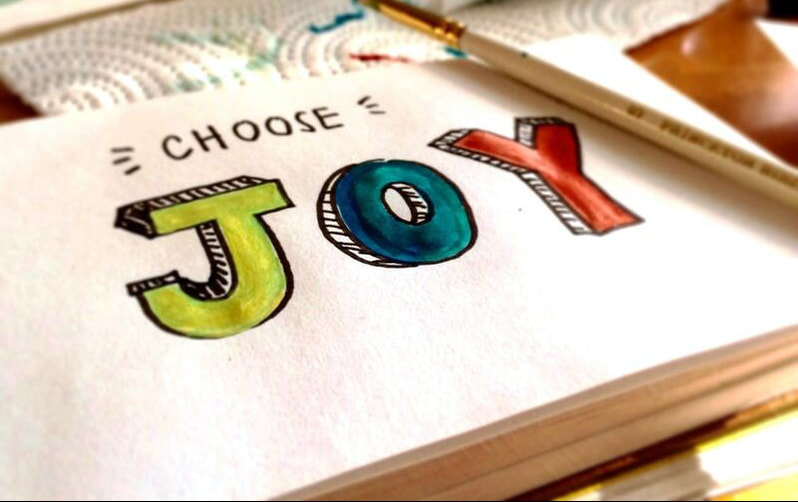|
We all know the feeling—angry, upset, and sad because the world is making our life less than perfect. Our boss is mean, our friends aren’t there for us, other drivers cut us off in traffic, the store clerk was rude, we got a surprise bill from the electric company. On and on, we have so many miseries that are not our fault. Susan wrote in Feel the Fear and Do It Anyway, “We all have a tendency to look around for someone to blame if things are not working out to our liking.” Blaming others of things outside our control means we are not taking responsibility for ourselves. Blame makes us into an injured party who has no control, who lets the world beat them down, who doesn’t respect themselves, who lives in misery. In Chapter 4, “Whether You Want It or Not…It’s Yours,” Susan talks a lot about taking responsibility for our own lives. As adults, we often feel that we are burdened with lots of responsibility. But responsibility for your day-to-day living is far different than taking responsibility for how you react to your day-to-day living. Sometimes it is hard to tell when we aren’t taking responsibility for how react. After a bad day, it’s easier to be mad at the world than it is to reconsider our feelings. So we blame. We blame others, the Universe, even ourselves…wallowing in our role as victim. “The point to remember is that when you blame any outside force for any of your experiences of life, you are literally giving away all your power and thus creating pain, paralysis and depression,” Susan said.
Taking responsibility means respecting ourselves, means having sympathy for any perceived wrongs, means acknowledging any setbacks and making plans for moving forward. Stop for a second, right now, and consider where in your life you aren’t taking responsibility. Are you angry at a supervisor for passing you over for promotion? Are you upset with your child for getting into trouble at school? Are you mad at your ex-partner for breaking up with you? There are so many ways, some of them very subtle, for us to wallow in our Lower-Self emotions of blame, hurt, anger, and disappointment. Susan said, “The truth is that you really are in control—in total control. For some reason, you are consciously or unconsciously choosing to be in that lousy job, you are choosing to hate the single life, you are choosing to let your daughter drive you crazy, you are choosing to sabotage anything good in your life…or whatever else it may be for you. I know it is difficult to accept the fact that you are the cause of the feelings that take away your joy in life. It is very upsetting when you begin to see yourself as your own worst enemy. On the other hand, this realization is your biggest blessing.” If you know you can create your own misery, it stands to reason that you can also create your own joy. When we claim our responsibility, we also claim our mastery over the experiences in our lives and can face our fears and move past them. In Feel the Fear and Do It Anyway, Susan offers seven definitions to reclaim our power. The first two are most relevant here as they are about taking responsibility instead of blaming. First lesson: Never blame anyone else for anything you are being, doing, having, or feeling. Making other people responsible for your feelings will always leave you in a place of pain and fear. With responsibility also goes control. When you own up to your own thoughts, feelings and deeds, you will soon find how much more powerful you can be. “Until you fully understand that you, and no one else, create what goes on in your head, you will never be in control of your life.” Second lesson: Do not blame yourself. If you can’t blame others and you can’t blame yourself, who can you blame? As silly as this sounds, it is how a lot of us think deep down. It comes with a misguided belief that the world is reasonable. When we blame ourselves, we are telling ourselves that we were wrong, that we made bad decisions, that we are messing up. But that is not taking responsibility for ourselves. “It is important to understand that you have always done the best you possibly could, given the person you were at any particular time.” It can be liberating when we take responsibility for our own reactions to the world. It may sound like an oxymoron but taking responsibility for our own choices frees us from sadness, self-pity, and all those victim-like feelings. When we choose to feel empowered, we are taking control and respecting ourselves. We are creating our own joy. Fully taking responsibility for your experience of life is a long process that requires much practice. The point is simply to begin. You will start to feel better immediately. Susan Jeffers Ph.D. Feel the Fear and Do It Anyway.® Photocredit: Pexels Reposted with permission from the Susan Jeffers company. Comments are closed.
|
Suzie Doscher is a Professional Executive Coach focusing on Personal Development. Located in Zurich, Switzerland. Her approach to personal development is practical and successful.
Suzie is happiest when helping people. Her vision is everyone should have access to techniques for personal growth and development. This was the motivation behind her book. Author |


 RSS Feed
RSS Feed

